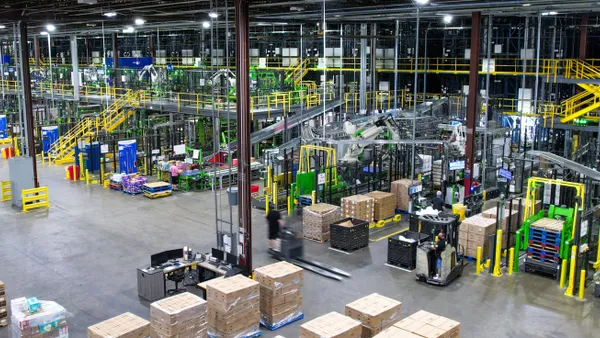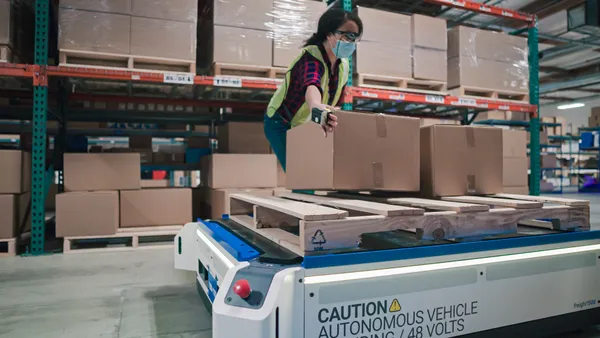Dive Brief:
- While 83% of procurement leaders in a survey by SAP Ariba said digital transformation will be impactful to supply chains in 2018, only 5% said they already have "highly automated" processes. The survey was conducted in partnership with the University of Applied Sciences Würzburg-Schweinfurt.
- However, procurement leaders "have defined [automation] as a priority," Marcell Vollmer, chief digital officer at SAP Ariba, told Supply Chain Dive. Among the 450 respondents, 63% have automation on their roadmap.
- Internet of Things (IoT) is the most commonly used technology, with robotic process automation (RPA) a close second. Technologies such as blockchain and 3-D printing are currently less commonly used in procurement.
Dive Insight:
The question businesses ask when automating and adopting new technology is no longer "should we do it?" but "how should we do it?"
The best place to start, Vollmer said, is looking at the overall company strategy: "How do you want to define the value proposition of what procurement can bring to the company?"
Defining that value proposition can then help determine priorities and which technologies will best serve a particular company. One in five survey respondents plan to use RPA in the future, and 17% said they would use artificial intelligence.
When it comes to procurement, automation can be highly beneficial to purchase orders and invoices.
Even though most companies create a purchase order electronically (for example, typing it on a computer), it's often printed and then mailed, faxed or sent by PDF. A better system, Vollmer said, is one where "the supplier receives [a purchase order] and basically can convert the information just received to create an invoice."
Once goods are received, the supplier gets paid according to terms of the contract. "You get very high efficiency out of it by basically getting rid of the manual or semi-automated processes," he said.
Semi-automation is common as procurement leaders work towards full adoption. More than half the respondents in SAP Ariba's survey described their processes as "somewhat automated."
Take automation a step further, and artificial intelligence (AI) could use past examples and current data to write the terms of a new contract. "It's reviewing the terms and conditions and only highlighting the areas where you as a buyer ... need to pay attention to," Vollmer said.
While these small steps can add up in increasing efficiency, progress will stall without access to good data.
"Master data is always an area of concern," Vollmer said. Nearly a quarter of respondents named analytics and master data quality as roadblocks to efficiency.














